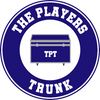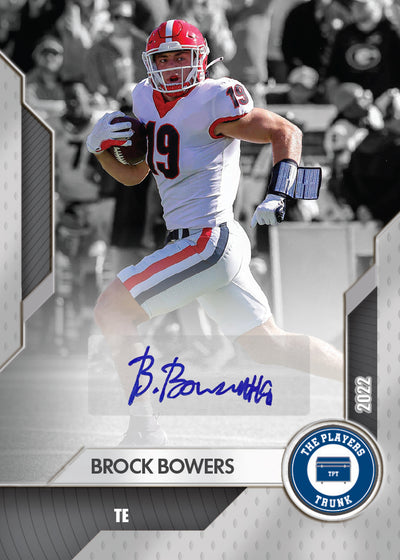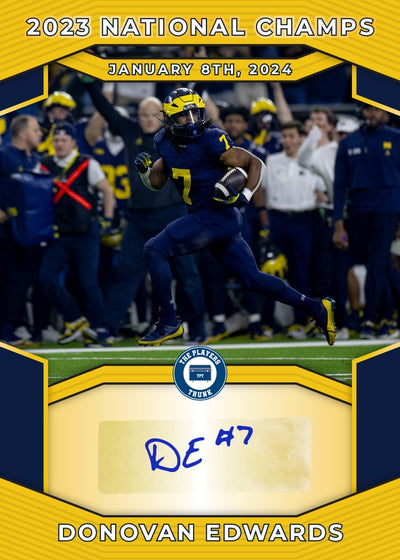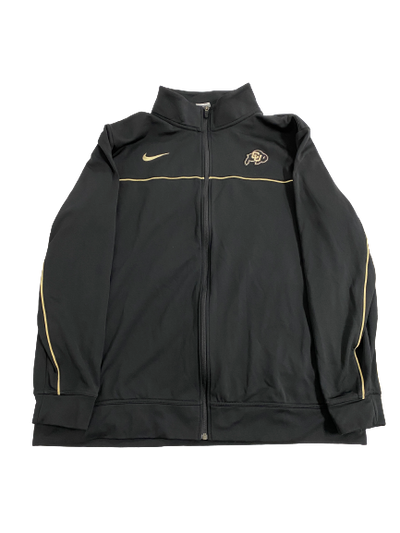FORBES: HOW 3 STUDENTS AND 2 FORMER COLLEGE BASKETBALL PLAYERS DISRUPTED THE ONLINE SPORTS MEMORABILIA MARKET
Article written by Tim Casey, Contributor SportsMoney
In March, like so many college students across the country, Hunter and Austin Pomerantz and Jason Lansing returned to their homes as the coronavirus pandemic led schools to close their campuses.
It was unfortunate timing as Hunter Pomerantz was a senior at Syracuse University and Austin Pomerantz and Lansing were juniors at the University of Michigan. All three were managers for their colleges’ men’s basketball programs. They were looking forward to the ACC and Big Ten conference tournaments when the season was abruptly cancelled.
Still, with more time on their hand than usual, they decided to start a business that so far has exceeded their expectations. They partnered with two former Michigan players, Charles Matthews and Zavier Simpson, and founded The Players Trunk, through which ex-college athletes could sell their jerseys, sneakers, shorts and other gear and fans could have access to rare items they never could have bought before.
“This was always in the back of our head and during the pandemic, we were all sitting at home,” Lansing said. “We wanted to be those kids that took the initiative and not just sit back and watch TV.”
The idea behind The Players Trunk occurred when Lansing helped Matthews and Simpson sell some of their gear through their Instagram pages after their college careers ended in 2019 and 2020, respectively. People showed interest in contacting Matthews and Simpson, but moreso to interact with famous athletes rather than purchase anything.
“I wasn’t reaching as many potential buyers as I could have,” said Matthews, who recently signed a deal with the Cleveland Cavaliers. “There weren’t many legit buyers. They were just checking in to say, ‘Hey,’ and things like that.”
That experience led to conversations between Lansing and the Pomerantz brothers as well as Simpson and Matthews. They knew there was a market out there beyond Instagram, particularly among older fans who may not use the platform but had a passion for college sports and wanted access to memorabilia they couldn’t find elsewhere. The problem was, none of the co-founders had any experience building a website or launching a company.
Lansing and the Pomerantz brothers then spent a few weeks perusing tutorials on YouTube and signing up with Shopify, a company that allows entrepreneurs to set up an online store and sell products.
In early July, they officially launched The Players Trunk with items from Matthews, Simpson and a few other former college athletes whom they had known or contacted about the ideas. NCAA rules prohibit college athletes from profiting from their gear, but those regulations do not apply to athletes who have exhausted their eligibility.
As the months have passed, The Players Trunk has continued to grow. Now, more than 200 athletes from more than 80 college programs are selling their items on the website, as are players from the NBA and NFL.
“I for sure had high hopes for it and a lot of confidence in it,” Matthews said. “But did I think it was going to take off the way it did at the rate it did? I can honestly say I didn’t think it was going to grow that fast, but I did think it had the potential to be big.”
The site’s increasing popularity has occurred primarily through word-of-mouth. Matthews and Simpson have gotten some of their former teammates and friends who played at other schools aboard. Lansing and the Pomerantz brothers, meanwhile, have taken the initiative to contact dozens of players via social media, as well, and it’s worked.
Two of the recent additions to The Players Trunk are former college basketball All-Americans who graduated this year: Michigan State guard Cassius Winston and Marquette guard Markus Howard. The items Winston is selling include signed cards and photos and game-worn shorts, while Howard is selling game-worn shoes, autographed photos and other items.
Fans can also have personalized video messages from Matthews, former Kentucky guards Ashton Hagans and Immanuel Quickley, former Notre Dame women’s All-American Arike Ogunbowale and numerous others.
“There’s something for everyone on our site,” Austin Pomerantz said. “It’s just a cool opportunity for fans to connect with their favorite athletes in a way they’ve never been able to before.”
The rapid growth has kept Lansing and the Pomerantz brothers busy, but they aren’t complaining at all. When athletes decide to join The Players Trunk, they send the gear to Lansing and the Pomerantz brothers, who then arrange the items, take photos and post them on the website. They also ship the items to fans who buy them and deal with any customer questions.
“We take the hassle out of it for the athletes,” Hunter Pomerantz said. “All they have to do to get the ball rolling is send us the stuff and we take it from there.”
For their work, Lansing and the Pomerantz brothers get a small cut of the sales price, although they wouldn’t disclose the exact percentage, only that the athletes keep almost all of the profit.
“It’s a mutual partnership with these athletes,” Lansing said. “We want to work with them to the best of our ability to ensure that they’re making as much money as they can and having the best experience.”
He added: “That’s super important to us, to not be another one of these big companies swooping in to take money. It’s about the process and the experience we’re trying to give these athletes.”
The Players Trunk’s co-founders are at the point now where multiple athletes reach out to them every day, looking to sell their gear online. They are also preparing to possibly partner with current college athletes. Last month, the NCAA unveiled proposed rules changes that would allow athletes to earn money from their name, image and likeness starting in August 2021. That could mean athletes could sell some things via The Players Trunk or other similar websites, although nothing has been finalized.
“We’re ready,” Lansing said. “We are taking the necessary steps to be aligned to the best of our ability once that legislation is passed. There’s not a day that goes by that we don’t plan for this.”
Lansing and the Pomerantz brothers credit their time as managers with the Syracuse and Michigan teams for helping them succeed as start-up founders. Working for such high-profile programs while juggling their course work made them understand how to work hard and manage their time. As managers, they are also adept at developing relationships, dealing with numerous inquiries and thriving in intense environments.
“This is exactly what we’re used to,” Hunter Pomerantz said. “Whether it’s dealing with athletes, waking up early, going to bed late, even just how to handle the gear, it’s all stuff we’re used to. Our experience as managers shaped and molded us to have full confidence in this business.”





